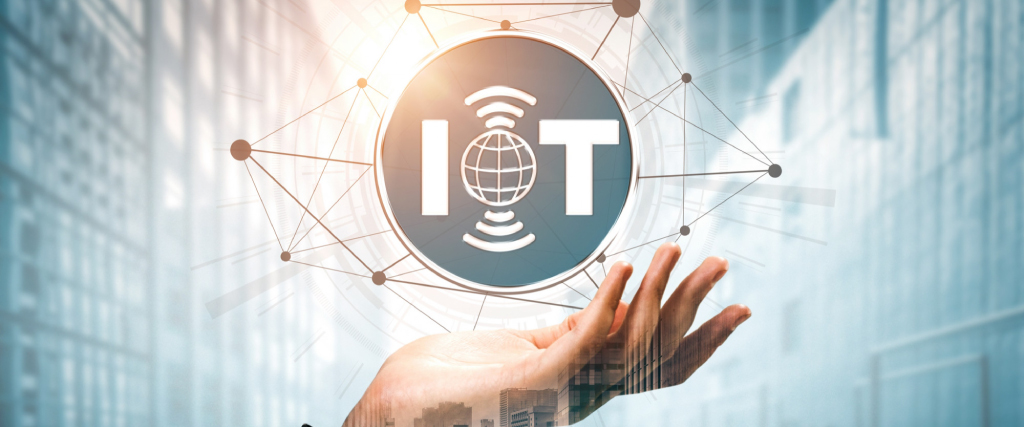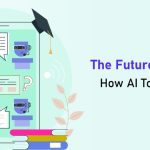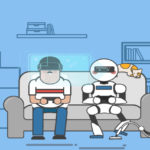IoT in real world: The Internet of Things (IoT) is generating a lot of buzz as it transforms our lives. Even though we don’t always see it or realize that a gadget is part of the IoT, it’s everywhere.
The Internet of Things is transforming physical things into an ecosystem of information exchanged across wearable, portable, and even implanted devices, enriching our lives with technology and data.
The Internet of Things (IoT) allows the physical world to be connected to computer-based processes, improving system efficiency and reducing human involvement.
What makes this current technology even more unique is its cooperation with Artificial Intelligence (AI). When IoT data is coupled with AI models, the result is an automated system that is on par with people in terms of efficiency.
The power of IoT, both on its own and in combination with other widely applicable innovations, is helping to define the future of a number of enterprises.
The state of IoT (with examples) and how industries are adopting it will be discussed in the next part. Let’s look at how technology is bringing positive change to everything from companies to daily activities.
-
The State of IoT in the Retail Industry – IoT in real world
By 2028, the worldwide Internet of Things industry is anticipated to reach $182.04 billion (according to a report by Grand View Research).
Customer need for a smooth shopping experience, as well as lower costs for IoT hardware and sensors, are some of the factors driving this rise.
-
Personalization of the customer experience
The Internet of Things (IoT) facilitates communication between a company and its consumers. Retailers, for example, may use beacons to improve customer experience and conversion. By delivering IoT-enabled alerts to passers-smartphones, brands and retail businesses may entice them to visit their establishments.
-
Optimization of the Supply Chain
IoT sensors aid in the tracking of items across the supply chain. IoT sensors can track parameters such as location, humidity, tilt & shock, temperature, speed, driving habits, and more.
These variables aid the supply chain team in determining if the products are safe, arrive on time, and are transported in optimum circumstances.
-
Management of the Warehouse and Inventory
IoT devices can help warehouses speed up order processing, decrease human labor and mistakes, and enhance overall operations efficiency.
IoT sensors may be used to track the flow of items, send real-time inventory data from shelves, and evaluate staff productivity, among other things.
-
IoT in Healthcare: Where It Is Now
The worldwide healthcare IoT market grew by 24% in 2020 during the COVID-19 pandemic, and it is expected to reach $89 billion in 2021 and $446 billion in 2028.
Patients, physicians, healthcare organizations, and insurance companies all benefit from IoT in the healthcare business.
Building IoT-enabled virtual wards/hospitals, early illness diagnosis, adherence to treatment regimens, geriatric care, and so on are some of the advantages that IoT provides to the healthcare industry.
-
IoT in the Hospitality Industry
In the hotel industry, IoT refers to the creation of an internet-connected network of digital devices. This type of technology improves the client experience while also lowering costs.
-
Hotel Rooms Customized – IoT in real world
Hotel guests can manage the amenities of their rooms via their mobile phones or supplied tablets, which is known as the “connected room” idea.
This allows visitors to manage the air conditioning and ventilation systems in their rooms, as well as connect for room service. Alexa skills for increasing the visitor experience is one of the most sought-after examples of IoT for hospitality.
-
Developing Intelligent Hotels
The hotels spend a lot of money on maintenance. In a variety of ways, IoT sensors can aid in the reduction of this expense.
Sensors in hotels can detect trouble areas and alert hotel staff. There might be malfunctioning lighting in the room, for example.
-
IoT in Finance: Where Are We Now?
IoT devices are an excellent way to collect information on clients and customers. The same may be used to forecast their investment potential, as well as their wants and requirements.
This real-time information then assists financial institutions such as banks, insurance companies, and brokerage businesses in better understanding their clients and sharing tailored offerings and solutions.
Artificial Intelligence systems can use the data generated from IoT devices to improve transaction security. A predictive solution may be built using AI models and IoT data to assist avoid fraudulent transactions
-
Industrial IoT
IoT has become a critical component of the industrial industry’s operations. For large and small companies alike, incorporating IoT into the everyday operations of a manufacturing facility or supply chain has made a variety of jobs feasible.
Manufacturing companies, for example, are largely relying on IoT to control inventories. Most industrial companies had to rely on manual ways to track and manage their assets before the Internet of Things became a possibility.
-
Houses with Smart Technology
A house that is entirely connected to the internet via a phone app may have sounded like a far-fetched fantasy only a decade ago, but it is already a reality for many people.
Everyday household items such as refrigerators, washers and dryers, cleaning systems, thermostats, lighting systems, and entertainment systems are now connected to IoT apps.
-
Agriculture and the Internet of Things
Over the last few years, smart farming has taken the agricultural world by storm.
IoT has connected devices, equipment, and even vehicles, resulting in increased farming efficiency, fewer labor-intensive operations, and higher average order value.
- Lastly
The Internet of Things is all over the place, which is mainly a positive thing for digital natives. We’re seeing IoT applications in a variety of sectors, and the technology has made significant progress in making data processing less difficult and time-consuming.
Other beneficial real-world uses of IoT may be seen in the farming, healthcare, and industrial sectors, where IoT is making life easier and more efficient for everyone involved.
Finally, linked applications that manage appliances and security systems are helping IoT in real world make people’s homes more pleasant and safer. If you are keen to know how this technology can be advantageous to your business, our IoT.
Read More: SMART INTERNET OF THINGS WILL MAKE OUR FUTURE SMARTER
























